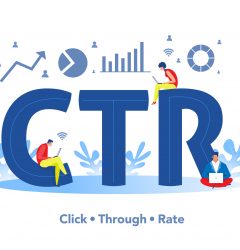25 Sep

In today’s digital landscape, search engine algorithms are becoming increasingly sophisticated. This means that more than just traditional SEO strategies are needed to ensure optimal visibility and engagement. This is where semantic SEO comes into play.
By understanding and harnessing the power of semantic search, content marketers can enhance their content’s discoverability and relevance, which can improve search engine rankings, organic traffic, and user satisfaction. Let’s dive into the specifics of semantic SEO and what it can do for your business.
Demystifying Semantic SEO for Marketers
Truth be told, semantic SEO is not as complex as it might sound. At its core, this area of SEO focuses on the meaning behind search queries and content rather than just targeting specific keywords.
Semantic search aims to understand user intent and context to deliver more accurate and meaningful search results. Considering the rise of voice search and natural language processing, this approach is essential in this day and age.
In traditional SEO, which tends to publish content based on a single keyword, a search engine might only deliver results around that specific keyword. However, semantic SEO considers synonyms, related concepts, and the context in which the keyword is used to help content appear in a wider range of results.
For instance, if someone searches for “best smartphone cameras,” a search engine’s semantic search techniques would not only look for pages containing those exact words but also understand that the user is looking for information about the quality of smartphone cameras and present results accordingly.
Incorporating Semantic Markup in Content Creation
Now, how can you incorporate this strategy into your own consent? One of the key techniques for implementing semantic SEO is using structured data and schema markup. This involves adding specific code to your website’s HTML to help search engines understand the context of your content.
By providing additional information about your content, such as reviews, ratings, dates, and more, you’re enabling search engines to display richer and more relevant results. Oftentimes, this will present itself in the form of rich snippets (the additional information displayed alongside the page title, description, and URL) or knowledge panels (the panel that appears to the right of search results with relevant and popular information).
Imagine you’re running a tech review blog, and you’ve published an article about the latest smartphone release. Using schema markup, you can classify page content like reviews, product names, release dates, and ratings. This helps search engines better understand your content and makes it more likely to be displayed as a rich snippet, giving your content higher visibility and credibility.
Advanced Strategies for Semantic SEO Implementation
To truly excel in your content marketing with semantic SEO, it’s crucial to go beyond just keyword optimization and embrace a holistic approach. Let’s take a look at some of the ways you can implement strategies for this type of organic growth for your business.
Topic Clusters
A topic cluster organizes content on your website around a central “pillar” page to cover a broad topic in-depth. Using this method of core topics and subtopics can signal to search engines that you’re an authoritative source on a particular subject, which can lead to better rankings.
User Intent Optimization
What’s driving customers to your website? Leverage analytics to better understand the different stages of user intent — such as informational, navigational, and transactional — and then tailor your content to address each step effectively to help boost your rankings.
Natural Language Content
Don’t let the rigid keyword-centric approach of the past guide you. It’s key to create content that mirrors how people naturally speak and ask questions. This aligns with the language patterns used in voice search and improves your content’s chances of being chosen as the best answer.
Leverage User-Generated Content
Encourage reviews, comments, and discussions on your platform to build your brand’s trust, engagement, and variety of perspectives. User-generated content often contains a wealth of semantically relevant information that can boost your content’s overall relevance.
Discover Semantic SEO Insights to Boost Your Content
As search algorithms evolve, semantic SEO has emerged as a pivotal strategy for content marketers to excel in the digital realm. By incorporating semantic SEO in your content, implementing structured data, and embracing advanced tactics, brands can enhance their ranking positions and provide users with the relevant and meaningful content they seek.
If you’re looking to give your content an SEO boost, data-driven insights are vital. Sign up for a free trial of PushGiant and use our AI-powered tools to increase your content’s organic traffic and conversions!





